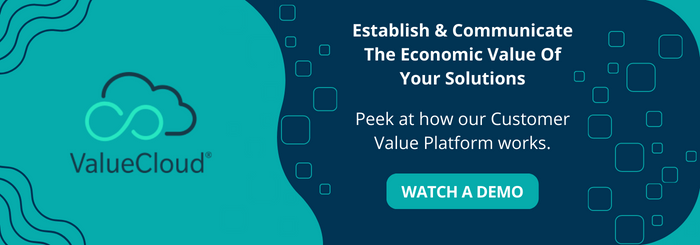CROs Must Choose CVM Technology with Three Goals in Mind

CROs are the drivers of the growth engine. They need great technologies to enable their teams and must ensure their technology are embraced and adopted by other CROs. They are both the target and the adopter/executor in the SaaS world. We see three primary goals of focus on for CROs to be successful in the context of greater technology availability, greater requirement for speed, and greater needs to technology impact. Let us look at them separately.
Process Automation
In 2018, McKinsey reported that only 31% of the firm’s sales process is fully automated. They report antiquated sales practices and too much manual work in the sales value chain of the organizations they researched [1]. With that in mind, CROs should keep these three considerations in mind:
- Focus on much more than pure headcount additions to grow: Should you focus on headcount, or should you invest more in technology? In the customer value management (CVM) space, finding and hiring a new Value Engineer might take twice as long and could cost close to $300,000 in annual costs. So again, you should ask yourself: “Should I focus on hiring, or should I invest in some platform that can be deployed in 90 days?”
- Focus on professionalizing your current sales and marketing teams: The goal in customer value management is to position all participants to operate successfully on the same level and to provide them with the right skill sets to succeed. New concepts like account-based marketing (ABM) or customer value management might challenge current talent levels, but they are necessary. Upskilling and reskilling current teams to work better, faster, and on the right programs is a productivity boost.
- Remove all manual processes: CROs need to focus on removing all unnecessary and legacy complexity out of the process. They must design their organizational blueprint and processes without manual processing and without silos. Technology can help. Embracing the right SaaS technologies can accelerate internal productivity. But CROs need to keep in mind that adding technology is not the end goal. The end goal is to improve customer outcomes and to produce an amazing experience.
Systems Integration
Process automation is a must have. But automation must be part of an overall mapping exercise that focuses on customer outcome and internal productivity. Most companies will use an ERP and a CRM solution. Around these pillars, they might anywhere between 3 to 7 additional software or apps to improve efficiencies[2]. What is the right number of apps and solutions? That is hard to say. But there is a limit to the integration and adoption of SaaS apps.
- Think platforms instead of individual apps: CROs need to elevate the discussion and consider platforms instead on individual solutions. This is the main reason why SaaS sales are softening in comparison to PaaS sales[3]. There is subscription fatigue and the reluctance to deploy solution after solution that might distract teams from the game. The future of PaaS and other marketplaces is bright in that context.
- Acquire apps and software tools that integrate in your existing app ecosystem: The number one preoccupation of IT teams should be the integration of new apps and solutions in the current IT ecosystem and to stop adding solutions that cannot be easily integrated or connected. For that CROs and CIOs need to work together.
- Select technology vendors that can accelerate your business outcome and velocity: Integration within the current ecosystem reduces the friction in the CRO team. CROs must select the right partners and do an apple-to-apple analysis between the solutions. CRO must focus on integration, simplification, and ease-of-use!
User Adoption
With the current number of apps in the CRO scope of work, teams are going crazy learning and adopting new app on a regular basis. This negatively impacts productivity and the ability to deliver required outcome.
- Evaluate your current sales efficiency tools and their existing adoption and impact: With 58 sales-related apps on average per organization, CROs must do an inventory of their current solutions and evaluate the adoption and engagement levels. How many licenses are activated, used, and how proficient are the sales team in using the solutions? What is the impact of every app deployed in the sales organization? What is the impact of each app? And this is not just for sales. The same analysis can be conducted for all functional areas.
- Require vendors and providers to deploy adoption development programs: Focusing on multi-functional apps is a priority to remove frictions and functional silos. Cross-functional apps encourage collaboration and communication. That, combined with customer centricity, is a powerful force in accelerating productivity and impact. CROs need to ensure adoption and utilization rate over 80% at the very minimum to see impact. How can vendors guarantee such an adoption rate? Are there guarantees or programs they can offer in their implementation plans or as part of their professional service offering?
With automation, integration, and adoption in mind, CROs can focus on transforming the mindset inside and outside their organization. A value mindset is a set of routines, rules, norms, beliefs, and behaviors, that place customer value as the number one priority. Every functional area and every individual understand their role in creating, quantifying, delivering, and realizing value for customers. They speak and breathe the customer financial objectives. Selecting the right technology that can deliver on these three goals can make or break a go-to-market strategy.
[1] The automation imperative,” McKinsey & Company, September 2018, McKinsey.com
[2] 2021 SaaS AE Report, The Bridge Group
[3] The State of SaaS in 2022: Growth Trends & Statistics – BMC Software | Blogs
Bio

Dr. Stephan Liozu (www.stephanliozu.com) is the Founder of Value Innoruption Advisors (www.valueinnoruption.com), a consulting boutique specializing in industrial pricing, digital business, and value models, and value-based pricing. Stephan has 30 years of experience in the industrial and manufacturing sectors with companies like Owens Corning, Saint-Gobain, Freudenberg, and Thales. He holds a Ph.D. In Management from Case Western Reserve University, and has written several books, including “Dollarizing Differentiation Value” (2016) and “Value Mindset” (2017).

 ValueCloud
ValueCloud
.png?width=118&height=76&name=Rectangle%20(3).png) ValueCloud Ignite
ValueCloud Ignite
.png?width=92&height=92&name=Rectangle%20(4).png) Free Assessment
Free Assessment
.png?width=100&height=100&name=Rectangle%20(5).png) Watch a Demo
Watch a Demo
.png?width=82&height=96&name=Rectangle%20(6).png) Value Calculator
Value Calculator

.png?width=62&height=51&name=Group%2010%20(1).png) Marketing
Marketing
 Sales
Sales
 Customer Success
Customer Success
 Engage Prospects
Engage Prospects
 Win Deals Faster
Win Deals Faster
 Retain Customers
Retain Customers
.png?width=62&height=62&name=Rectangle%20(8).png) Adopt and Scale
Adopt and Scale
.png?width=54&height=54&name=Rectangle%20(9).png) Cybersecurity
Cybersecurity
 Healthcare
Healthcare
.png?width=54&height=54&name=Rectangle%20(10).png) IT & Software
IT & Software




